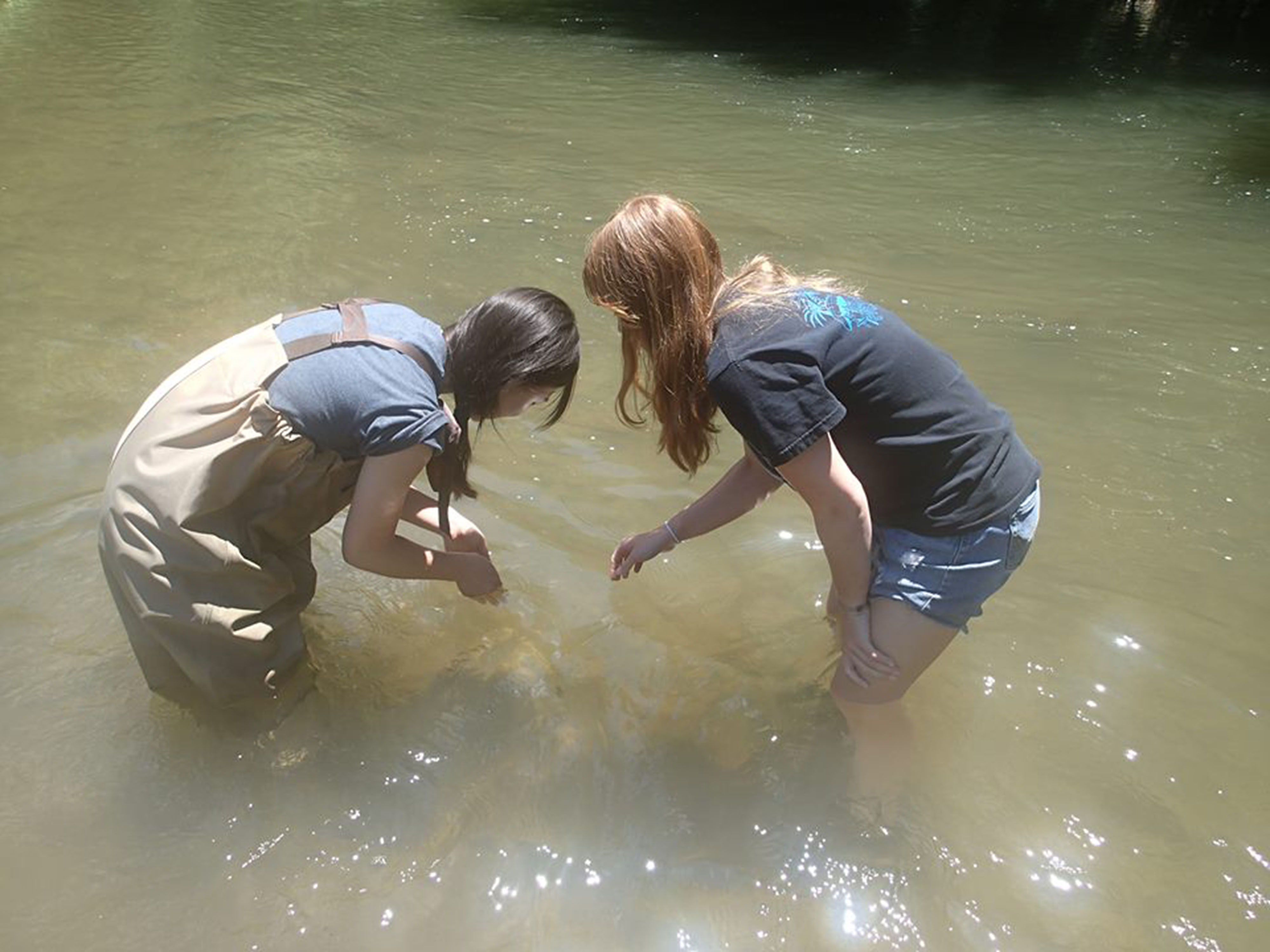More than 250 undergraduate students 'invent the future' through research this summer

In just the past two summers, undergraduate research opportunities have grown considerably at Virginia Tech.
To illustrate, there are now 21 programs involving most departments and colleges on campus, and the Fralin Life Science Institute's Summer Undergraduate Research Fellowship (SURF) program has tripled in size.
“The surprising thing is that not all of these students are from Virginia Tech — we are serving students from universities across the nation,” said Tomalei Vess, the university's director of undergraduate research.
Take Meghan Letizia of Dublin, Ohio, a rising sophomore in engineering education at Ohio Northern University, as an example. Letizia is part of the Summer Engineering Education Collaboratory (SEEC) program managed by Lisa McNair, an associate professor of engineering education, a co-director of the Virginia Tech Engineering Communication Center, and an assistant department head for graduate programs.
Letizia is learning Web design skills to create a website for instructors at any institution to implement an Interdisciplinary Product Design Studio course. The course focuses on developing marketing, industrial design, and engineering skills, which are all necessary for creating pervasive computing products.
“Meghan has been quite the asset to the SEEC team. She is one of 13 students participating this summer. The instructor-friendly website will help professors nationwide teach necessary skills in the field of engineering education,” McNair said.
Students are also given opportunities to solve global issues through their research. Christine Tin of Woodbridge, Va., a rising sophomore in biological sciences in the College of Science, and Uria Lee, of Fairfax, Va., a rising junior of biochemistry in the College of Science, are no exceptions.
Under mentor Lijuan Yuan, an associate professor of virology and immunology in the department of biomedical sciences and pathobiology at the Virginia-Maryland Regional College of Veterinary Medicine, Tin is examining ways to increase the efficacy of rotavirus vaccines through the use of probiotics, or ‘good’ bacteria.
“Rotavirus kills approximately 453,000 children each year worldwide, despite the disease being vaccine-preventable, proving current vaccines are not as effective as they could be,” Tin said. “What really strikes me is that, as only a rising sophomore, I have been able to contribute to immunological discoveries that no one else in the world is aware of.”
Undergraduate researchers are also given the opportunity to learn skills that apply to a variety of professions. Lee, while working in the insect toxicology lab run by Troy Anderson, an assistant professor of entomology in the College of Agriculture and Life Sciences, has gained a lot from her experience.
“While participating in SURF lectures and having a great mentor to learn from, I think I have a much better idea of how to work in a lab safely and appropriately," she said. "In the future these skills will come in handy because I have an interest in pharmaceutical sciences and most likely will have to participate in labs again.”
Under Anderson, Lee examines how honeybee health is affected by pesticide exposures.
“This study is providing important information about the exposure of managed bee colonies to common-use pesticides and the health risks associated with these exposures,” Anderson said. “These data will not only improve our ability to predict favorable or unfavorable conditions for bee health, but will be used to provide useful management practices to reduce the loss of bee colonies for both the apicultural and agricultural industries.”
Vess said approximately 250 undergraduate students are actively participating through research programs across campus this summer. About 200 students will come together for a symposium at the Inn at Virginia Tech and Skelton Conference Center on July 31, nearly double the attendance from 2012. Please contact Vess for more information about the SURF program.
Dedicated to its motto, Ut Prosim (That I May Serve), Virginia Tech takes a hands-on, engaging approach to education, preparing scholars to be leaders in their fields and communities. As the commonwealth’s most comprehensive university and its leading research institution, Virginia Tech offers 240 undergraduate and graduate degree programs to more than 31,000 students and manages a research portfolio of $513 million. The university fulfills its land-grant mission of transforming knowledge to practice through technological leadership and by fueling economic growth and job creation locally, regionally, and across Virginia.




